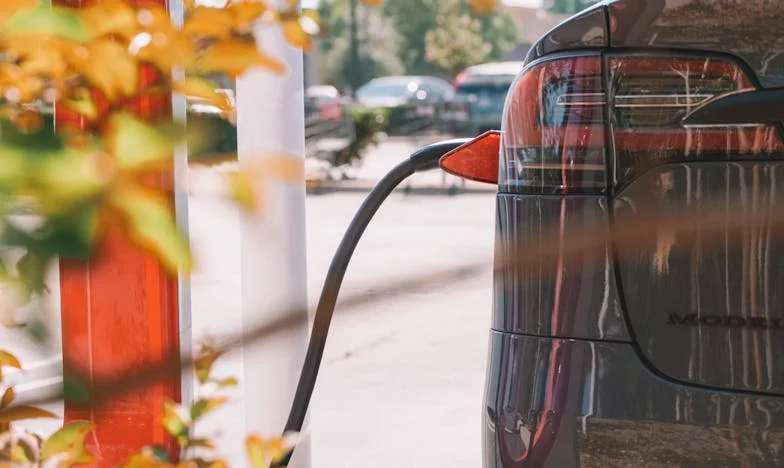On the Edge: The Night I Chose to Stay
“Ma’am, please—step away from the edge!” The voice cut through the wind, sharp and desperate. My knuckles were white against the cold, rusted railing. Below, the Schuylkill River shimmered—black, endless. I could taste salt on my lips, but I wasn’t sure if it was sweat or tears.
I didn’t look back. I just let the night fill my lungs and waited for the courage to let go.
“What’s your name?” The officer’s voice trembled. I wanted to scream, to tell him it didn’t matter. But in that moment, all I could think of was the patient I’d just lost. The blood, the broken bones, the way his mother’s face crumpled when I told her he might not make it. His name was Tyler Collins, twenty-one, just a kid. He made it through the surgery, but I knew the odds were against him. And now, I was the one standing on the edge.
Just three hours before, the ER was a war zone. Sirens, shouting, the metallic smell of blood. I’d been an attending at Jefferson for six years, but nights like this never got easier. My hands still shook as I pressed the coffee machine’s ancient button in the cramped break room.
“Rough one, Dr. Harris?” Marlene, the charge nurse, handed me a mug. Her eyes flickered to the smudges under mine.
I tried to smile. “Lost another kid tonight.”
She squeezed my arm. “You can’t save them all.”
But what if I was supposed to?
My phone buzzed: Mom. Again. I let it ring. She’d leave another voicemail, voice tight, asking why I worked so much, when I was coming home to Ohio for Thanksgiving, whether I’d started seeing anyone since Ethan and I split up. My parents never understood why I chose Philly, why I stayed in medicine, why I seemed determined to outrun myself.
Every time she called, I heard my father in the background, coughing—his lungs ruined from decades in the steel mill. “You’re gonna work yourself into the ground, Katie,” he’d say. “Come home.”
But I couldn’t go back. Not after what happened with Ethan. Not after the miscarriage. Not after realizing that sometimes, even when you do everything right, life still rips you apart.
The trauma pager screamed. “MVC, Code Red, ETA five minutes!” Car accident. I rushed to trauma bay one, adrenaline burning through my exhaustion. Tyler’s face was a mask of blood. The team swarmed. “Pulse is thready!” “Bag him!” “Chest tube—now!”
I lost track of time. We cracked his chest. I held his heart in my hands, willing it to keep beating. He made it to the OR, barely. I stood outside, scrubs soaked, and watched as his mother—her coat on inside out, mascara streaked—collapsed into a social worker’s arms.
Back in the break room, I stared at the coffee and thought about all the things I’d lost. My marriage. My hope. My sense that any of this mattered. I scrolled through old photos—Ethan and I at Niagara Falls, my baby niece in her baptism dress, Dad at the grill. The faces blurred.
Somewhere in the city, I heard the distorted blare of a car horn. I packed up, told Marlene I needed air, and drove. The bridge was old, peeling. I parked, hands numb, and walked until I reached the midpoint. My mind spun with every patient I couldn’t save, every mistake I’d made, every call from home I’d ignored.
That’s when I climbed the rail.
The officer’s voice came again, closer now. “Katie, is it? I’m Officer Daniels. I just want to talk.”
How did he know my name? I realized I still wore my badge. I almost laughed. The absurdity of it.
“I know what it’s like to feel like there’s no way out,” he said. “But you help people. Every day. Let someone help you.”
The tears came, hot and unstoppable. I thought of Tyler’s mother. Of my own mom, leaving voicemails I never returned. Of my dad, telling me to come home before it was too late.
“I can’t fix it,” I whispered. My voice was so small.
Daniels stepped closer. “You don’t have to. Just take my hand. Let’s get off this bridge. We can talk.”
Something in me broke. I remembered holding Tyler’s heart, feeling it flutter—so fragile. I thought of my first day of med school, when I swore I’d never let myself become numb. I thought of the little girl in the ER last month who gave me a crayon drawing after I stitched her forehead. I thought of the family dinners I’d skipped, the laughter I’d tuned out, the love I’d pushed away because I was afraid of failing again.
I let go of the railing. I let Officer Daniels guide me back, the city lights blurry through my tears. The paramedics asked questions, gentle and patient. I gave them my name, my badge, my pain.
I spent the next days in a quiet hospital room, not as a doctor but as a patient. My parents drove in from Ohio. My mom held my hand. My dad, for the first time, cried.
I started therapy. I called Ethan. I started answering my mom’s calls, even when all I could say was, “I’m here.”
Sometimes, late at night, I still hear the sirens. I still see Tyler’s face. But I also remember Officer Daniels’ hand, steady and warm. I remember that I am not alone.
If you’re reading this, maybe you know what it’s like to stand on the edge. Maybe you’ve lost more than you thought you could bear. Maybe you think no one will understand. But you’d be surprised who’s willing to listen, if you just let them in.
Do you ever wonder how many lives change in a single night? How many hands we have to reach for before we’re finally saved—sometimes from ourselves?
